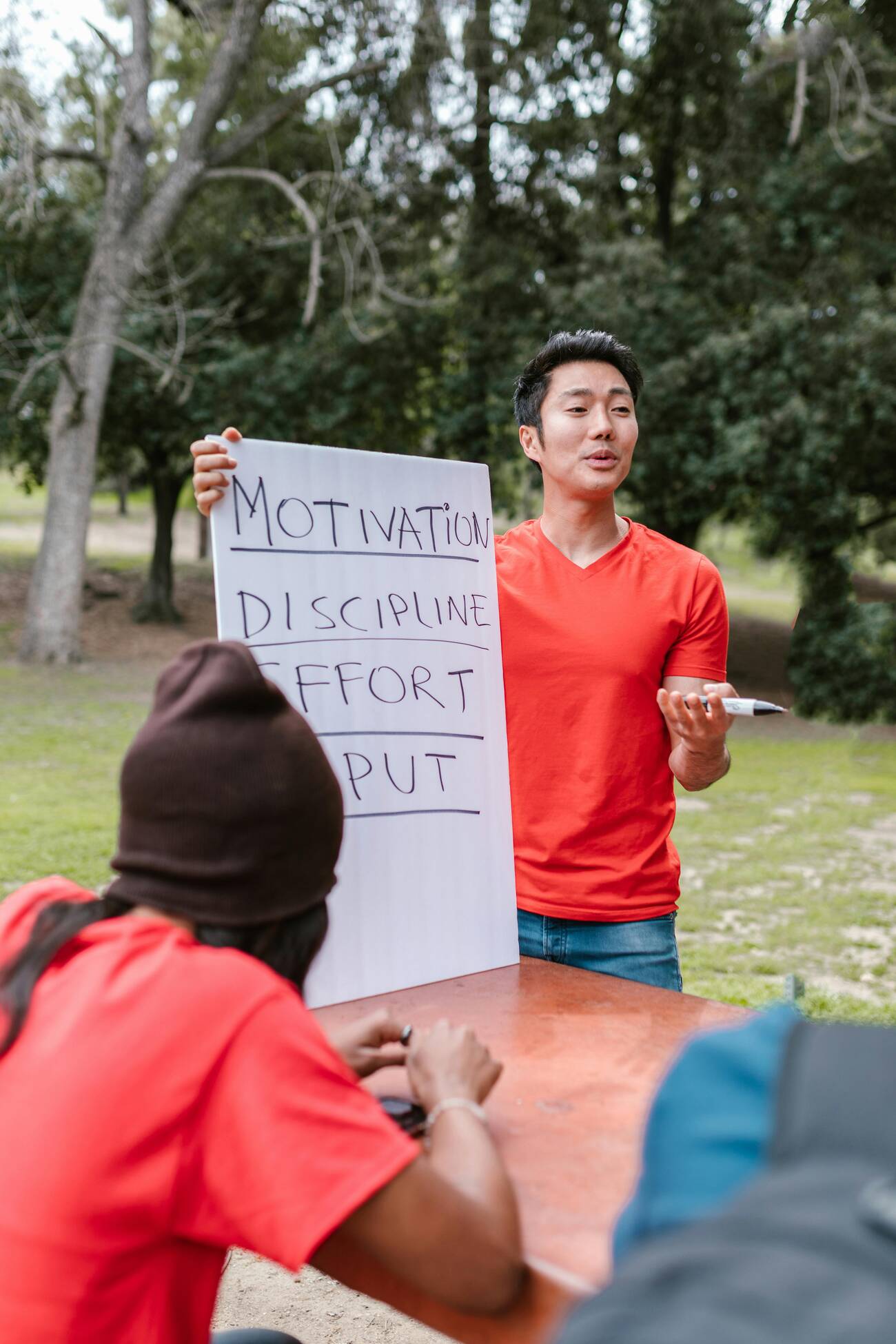As vocal coaches, we understand how effective communication leads to success for team leaders. Team leaders who struggle with communication often find it difficult to convey their vision and needs. Drawing from our experience, here are our insights on the key communication skills for team leaders and strategies to motivate teams toward success.
Key Communication Skills for Team Leaders
Effective communication stands at the core of successful leadership. As a team leader, your ability to convey ideas, listen actively, and foster an environment of open dialogue can significantly impact your team’s productivity and morale. Recognizing and honing these skills is a professional necessity and a pivotal element in personal growth within a leadership role.
Foundations of Team Leadership
A strong foundation in leadership and effective communication is imperative for team leaders. Key elements include understanding the intrinsic link between leadership and communication, as well as the role of trust in fostering a collaborative environment.
Understanding Leadership and Communication
Leadership and communication are intertwined. Effective leaders articulate their vision clearly and listen actively to their teams. This two-way communication fosters an environment where team members feel valued and understood.
Emotional intelligence plays a significant role. It’s about being aware of not only your emotions yet also those of your team. High emotional intelligence can improve interactions, reduce conflict, and promote a more harmonious work environment.
Building Trust Within the Team
Trust is the cornerstone of a successful team. Building trust starts with consistent and reliable communication. Share your thoughts, plans, and expectations openly. This transparency helps team members feel involved and aligned with the team’s goals.
Encourage team members to share their thoughts and input regularly. This fosters a sense of ownership and commitment. Address their concerns and feedback with empathy, demonstrating that you value their perspectives.
Mastering Communication Skills
To excel as a team leader, you should hone several key communication skills, such as active listening, empathy, and nonverbal communication.
Active Listening
Active listening involves focusing entirely on the speaker, understanding their message, and responding thoughtfully. This means not just hearing words yet also interpreting the emotions and intentions behind them.
- Maintain eye contact
- Nod and use verbal cues like “I see” or “I understand”
- Paraphrase and summarize what the speaker has said
- Avoid interrupting
 Practicing these techniques helps you accurately grasp the speaker’s message and builds a rapport with your team members.
Practicing these techniques helps you accurately grasp the speaker’s message and builds a rapport with your team members.
Empathy
Empathy is your ability to understand and share the feelings of another person. It’s vital for building strong, supportive relationships within your team.
- Listen without judgment
- Validate your team members’ feelings
- Show genuine concern and understanding
- Offer support and encouragement
Showing empathy can improve team morale, enhance motivation, and create a positive working environment. When team members feel understood and valued, they are more likely to collaborate effectively and contribute their best efforts.
Effective Verbal Communication
Effective verbal communication involves not just what you say or how you say it. Clarity and tone of voice are necessary. Your voice is the best tool you have to establish a solid connection with your team.
- Use concise and clear language
- Adjust your tone to match the situation
- Avoid jargon and unnecessary complexity
By focusing on these aspects, you guarantee your message is understood correctly. This reduces the chances of misunderstandings and helps maintain a smooth workflow.
Nonverbal Communication
Nonverbal communication includes body language, facial expressions, and gestures, which can significantly impact how your message is perceived.
- Maintain open body language
- Use appropriate facial expressions
- Be mindful of your gestures and posture
Nonverbal cues often speak louder than words. Positive body language like nodding can reinforce your message and make your team feel more at ease.
Constructive Feedback
Providing constructive feedback is necessary for personal and professional growth within your team. It should be specific, actionable, and delivered thoughtfully.
- Focus on the behavior, not the person
- Be specific about what needs improvement
- Offer actionable suggestions
- Balance negative feedback with positive reinforcement
By mastering the art of constructive feedback, you help your team members grow while maintaining their confidence and motivation. This creates a culture of continuous improvement and mutual respect.
Leading with Strategic Vision
Effective team leadership relies heavily on clear communication strategies that aid in decision-making and inspire performance. Leaders must skillfully navigate complex situations while keeping the team motivated and focused.
Decision-Making and Problem-Solving
Strategic vision involves the ability to make sound decisions quickly and effectively. Leaders should foster a collaborative environment where team input is valued and considered.
- Create a structured decision-making process
- Use data-driven insights to support decisions
- Encourage brainstorming and open discussions to explore different perspectives
Leaders must also be adept at anticipating potential problems and devising proactive solutions. Delineating roles and responsibilities within the team can streamline decision processes and guarantee accountability.
Inspiring and Motivating Performance
Inspiring your team requires more than setting goals; it involves creating a supportive environment where team members feel valued. Utilize emotional intelligence to understand and respond to team needs.
- Recognize and celebrate achievements, both big and small
- Provide ongoing professional development opportunities
- Foster a culture of innovation by encouraging creativity and risk-taking
By aligning your communication style with your team’s needs, you can build trust and foster a sense of shared purpose, driving exceptional performance.
Related Questions
Should I Give Feedback Immediately or Wait for a More Appropriate Time?
You should carefully consider the timing of your feedback for maximum impact. Immediate feedback can be beneficial when addressing urgent issues or providing quick corrections. Yet, for more in-depth conversations, choose a time that allows privacy and reflection to avoid putting team members on the spot.
Should I Involve My Team in Decision-Making Processes?
Involving your team in decision-making processes can improve engagement and foster a sense of ownership. By asking for their input, you show that you value their perspectives and trust their judgment. This inclusivity can lead to more creative solutions and a collaborative work environment where team members feel appreciated and motivated.
Should I Use Humor in Communication to Build Rapport With My Team?
Using humor can be an effective way to build rapport and create a positive atmosphere. It’s important to be mindful of the timing and cultural sensitivities to guarantee it is appropriate and well-received. Done correctly, humor can lighten the mood, reduce stress, and foster stronger relationships within your team, enhancing whole communication.
Conclusion
Key communication skills are indispensable for team leaders. Working on your active listening skills, clarity in communication, and empathy for your team members can foster an environment of collaboration that strengthens team dynamics. Additionally, encouraging open dialogue guarantees everyone feels valued and contributes meaningfully. Your commitment to these principles improves productivity and builds trust.






